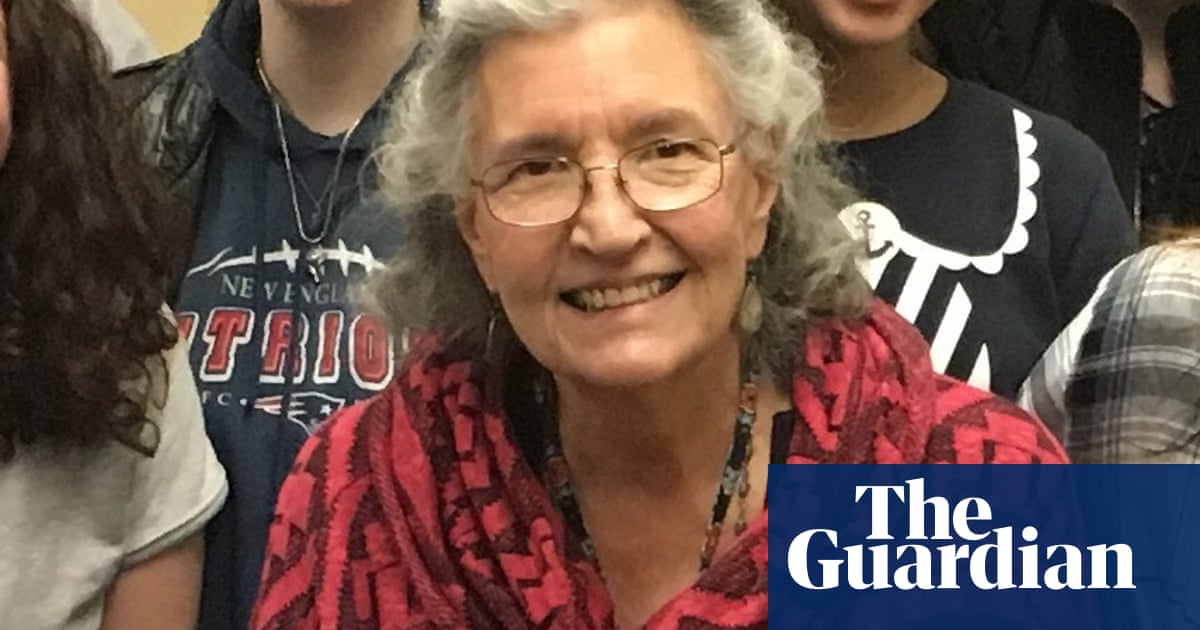In 1958, Norma Meras Swenson, who has died aged 93, gave birth to her daughter, Sarah, in Boston, Massachusetts. The experience opened her eyes to how little agency American women had over something as natural as childbirth, and this set her up for a lifetime of activism.
She became an expert in reproductive health and women’s rights and the book she co-wrote, Our Bodies, Ourselves, changed the landscape of women’s health. It brought into the open subjects such as contraception, birth and masturbation and has been compared to Dr Spock’s Baby & Child Care in terms of impact. Since 1970, it has been through nine editions, sold more than 4m copies and has been translated into 31 languages. In 2012, it featured in the Library of Congress exhibition Books that Shaped America.
Swenson’s story began when she went into labour. She was offered the drug scopolamine and, not knowing what it was, she padded down the corridor to a pay phone to call Harvard University’s medical library. She discovered it was given with morphine to induce “twilight sleep”’ in childbirth. Not wanting to be knocked out during such a momentous life event as giving birth, she refused it. She was appalled at the other women on the ward who were taking the drug and who were hallucinating, crying out and having their babies extracted with forceps. Swenson said: “These women were not being helped, they were being controlled.”
Scouting around for like-minded people afterwards, Swenson came across the Boston Association for Childbirth Education, one of the first organisations in the US to focus on natural childbirth. In 1964 she became its president, promoting discussion of issues such as breastfeeding.
In 1969 she heard about a female liberation conference taking place at Emmanuel College in Boston and attended a “women and their bodies” workshop. At this time, the only information on subjects such as menstruation and contraception was in medical textbooks, and a group of women at the workshop, who became the Boston Women’sHealthCollective, wanted to put information into the hands of ordinary women.
They made a list of topics such as anatomy, birth control, pregnancy and menopause, pooled their experience, and in 1970 wrote a 192-page book. Having raised $1,500, they commissioned New England Free Press to publish it, first asWomenand Their Bodies and later as Our Bodies, Ourselves to reflect women taking ownership of their bodies. It sold 250,000 copies by word of mouth, something the commercial publisher Simon & Schuster was quick to notice. They became its publisher for subsequent editions from 1972, with the collective insisting there should be a 70% discount for health clinics purchasing copies.
Swenson was the oldest member of the collective and unlike some of the group she had a child. Her expertise in pregnancy and childbirth made her the perfect choice for writing the chapters on those subjects. As well as the original chapters, she contributed to later editions and to other titles, including Ourselves, Growing Older (1987) and Ourselves and Our Children (1978).
Norma was born in Exeter, New Hampshire. Her father, Halford Meras, ran the family business – the town’s furniture store – and her mother Nellie (nee Kenick) was its bookkeeper. Norma was an only child, who loved fashion and dancing, and her father encouraged her from an early age to be a free thinker, to challenge authority and to debate politics and civil rights.
She attended Boston Girls’ Latin school (now the Boston Latin Academy) and from childhood had an abiding interest in botany and nature. She studied at Tufts University in Massachusetts, majoring in sociology, and graduated in 1953. In 1956 she married John Swenson, a decorated second world war pilot, who sold insurance and was a postal worker. Her trajectory as a 1950s housewife however was interrupted in 1958 when her daughter was born and she found activism.
Swenson remained heavily involved with the Boston Women’s Health Collective all her life, its members becoming like family to her. Tall and beautifully dressed, she was an eloquent speaker, and, as the collective’s first director of international programmes, she worked to support the women’s groups around the world who were translating and adapting Our Bodies, Ourselves (eventually there were 34 foreign editions).
She and another member of the group, Judy Norsigian, in 1977 went on a whirlwind trip to 10 European countries, forging connections with fellow activists and natural childbirth pioneers includingSheila Kitzinger. She also represented Our Bodies, Ourselves and the collective at the UN Conferences on Women between 1975 and 1995.
Swenson was keen to educate herself as much as possible, so she undertook postgraduate studies in medical sociology at Brandeis University in 1977-78, followed by a master’s degree in public health at Harvard University. She created and taught the course Women, Health and Development from a Global Perspective at the Harvard School of Public Health from 1998 to 2015.
In later life, Swenson was a co-chair of the Latina Health Initiative Committee, supporting feminists in Puerto Rico. She spoke out about subjects such as sterilisation abuse and rape in care homes, and supported numerous causes including the Massachusetts Dignity Alliance and the Black Women’s Health Imperative.
Her husband died in 2002 and afterwards she reconnected with her former college sweetheart Leonard van Gaasbeek, remaining close friends with him until his death in 2019. She retained a gallant “can-do” spirit even in old age: she joined the 2017 Women’s March in Boston despite limited mobility, sending a message to colleagues, “Have cane, will travel!”
Swenson is survived by Sarah.
Norma Lucille Meras Swenson, writer, sociologist and women’s health activist, born 2 February 1932; died 11 May 2025
